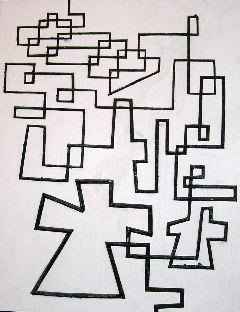64. From Poetry and the Age by Randall Jarrell
Selections from: Poetry and the Age by Randall Jarrell
Page 12.
When you begin to read a poem you are entering a foreign country whose laws and language and life are a kind of translation of your own; but to accept it because its stews taste exactly like your old mother's hash, or to reject it because the owl-headed goddess of wisdom in its temple is fatter than the Statue of Liberty, is an equal mark of that want of imagination, that inaccessibility to experience, of which each of us who dies a natural death will die.
Page 22.
Art matters not merely because it is the most magnificent ornament and the most nearly unfailing occupation of our lives, but because it is life itself. From Christ to Freud we have believed that, if we know the truth, the truth will set us free: art is indispensable because so much of this truth can be leaned through works of art and through works of art alone––for which of us could have learned for himself what Proust and Chekhov, Hardy and Yeats and Rilke, Shakespeare and Homer learned for us? and in what other way could they have made us see the truths which they themselves saw, those differing and contradictory truths which seem nevertheless, to the mind which contains them, in some sense a single truth? And all these things, by their very nature, demand to be shared; if we are satisfied to know these things ourselves, and to look with superiority or indifference at those who do not have that knowledge, we have made a refusal that corrupts us as surely as anything can.
Page 70.
The common reader does not know that it is an age of criticism, and for him it is not. He reads (seldomer and seldomer now) historical novels, the memoirs of generals, whatever is successful; good books, sometimes––good books too are successful. He cannot tell the book editor of the Chicago Tribune from Samuel Johnson, and is neither helped nor hindered by criticism––to him a critic is a bestseller list, only less so. Such a reader lives in a pleasant, anarchic, oblivious world, a world as democratic, almost, as the warm dark depth below, where nobody reads anything but newspapers and drugstore-books and comic books and the Reader's Digest at the dentist's. This common reader knows what he likes, but is uncomfortable when other people do not read it or do not like it––for what people read and like is good: that is what good means.


0 Comments:
Post a Comment
<< Home